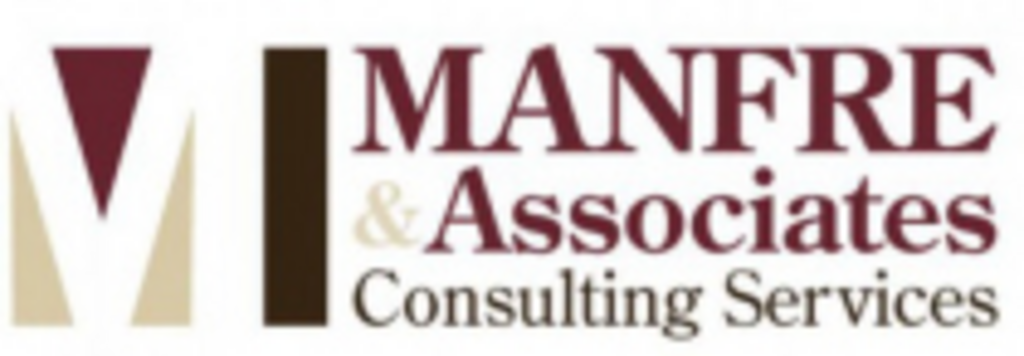The Critical Role of Financial Organization in Business Growth and Scaling

In the world of business, growth and scaling are often seen as the ultimate goals. But while the allure of expanding your operations, increasing revenue, and entering new markets is enticing, the journey to get there is fraught with challenges. One of the most significant hurdles that entrepreneurs face is securing the necessary funding to support this growth.
However, securing funding isn't just about having a great business idea or a solid business plan. It's about showing potential lenders and investors that you have your financial house in order. Without organized financials, your business may struggle to prove its worth, leaving you at a disadvantage when seeking the capital needed to take your business to the next level.
In this edition we delve into the critical importance of financial organization for businesses looking to grow and scale. We'll explore why organized financials matter, what key documents you need to have ready, and how you can keep your financials in top shape to ensure you're always prepared when opportunity knocks.
Why Financial Organization is Crucial for Business Growth
Before diving into the specifics of what lenders are looking for, it's essential to understand why financial organization is so crucial for any business looking to grow. Here are a few reasons why keeping your financials in order should be a top priority:
1. Building Lender Confidence
When you approach a lender for a loan, you're asking them to take a risk on your business. To minimize their risk, lenders need to feel confident that you can manage your finances effectively. Organized financials are a clear indicator that you take your business seriously and are capable of handling the responsibilities that come with growth.
Disorganized financials, on the other hand, raise red flags. If your financial records are messy, incomplete, or outdated, lenders may doubt your ability to manage the loan you're asking for. This can result in higher interest rates, less favorable terms, or even outright rejection of your loan application.
2. Making Informed Decisions
Growing and scaling a business requires making a series of critical decisions, from how much to invest in new products or services to whether to hire additional staff. These decisions should be based on accurate, up-to-date financial information.
Organized financials allow you to see the full picture of your business’s financial health. You’ll have a clear understanding of your cash flow, profit margins, expenses, and debts. This information is vital for making informed decisions that will lead to sustainable growth.
For example, imagine you're considering opening a new location for your business. Without accurate financial records, you may underestimate the costs involved or overestimate your ability to finance the expansion. This could lead to financial strain and potentially jeopardize the success of your new venture.
3. Enhancing Transparency and Trust
Transparency is a cornerstone of successful business relationships. Whether you're dealing with lenders, investors, partners, or employees, people want to know that your business is being run transparently and ethically.
When your financials are organized and readily available, it shows that you have nothing to hide. This builds trust with those you do business with and can lead to stronger relationships, more opportunities, and better terms on loans and investments.
For example, investors want to know that their money is being used wisely and that they will see a return on their investment. Organized financials allow you to provide them with detailed reports on how their funds are being used, giving them the confidence to continue investing in your business.
4. Ensuring Legal Compliance
Staying compliant with tax laws, regulations, and reporting requirements is a legal obligation for any business. Failure to comply can result in fines, penalties, and even legal action, all of which can severely impact your ability to grow and scale.
Organized financials make it easier to stay on top of your legal obligations. You'll have all the necessary documents at your fingertips when it's time to file taxes, submit reports, or respond to audits. This not only helps you avoid legal trouble but also ensures that your business can continue operating smoothly.
For instance, if your business is selected for a tax audit, having organized financial records can make the process much less stressful and time-consuming. You’ll be able to quickly provide the auditor with the information they need, reducing the risk of penalties or other negative consequences.

Key Financial Documents Lenders Expect
When you're ready to approach lenders for funding, it's crucial to have a comprehensive set of financial documents prepared. These documents provide a detailed snapshot of your business's financial health and demonstrate your ability to manage the loan you're seeking. Below are the key financial documents that lenders typically expect to see:
1. Bank Statements
Your business’s bank statements are one of the first things a lender will review. These statements provide insight into your cash flow, spending habits, and overall financial health. Lenders typically request bank statements covering the last 6 to 12 months, though some may ask for an even longer history.
To ensure your bank statements reflect positively on your business, make sure they are reconciled and accurate. Any discrepancies between your bank statements and your financial records can raise red flags and make lenders question your reliability.
When reviewing your bank statements, lenders will look for signs of financial stability, such as consistent deposits, manageable withdrawals, and a healthy cash balance. They may also examine your transaction history to assess your spending patterns and determine whether you’re managing your finances prudently.
2. Personal Financial Statement
While your business's financials are important, lenders also want to understand your personal financial situation. A personal financial statement provides a detailed overview of your personal assets, liabilities, income, and expenses.
This document helps lenders assess your personal financial health and your ability to support your business if needed. For example, if your business is struggling, lenders want to know that you have the personal financial resources to help it through tough times.
Your personal financial statement should be comprehensive and up-to-date. Include all assets, such as real estate, investments, and savings, as well as all liabilities, such as mortgages, loans, and credit card debt. Be honest about your financial situation—any discrepancies between your personal financial statement and other documents could undermine your credibility with lenders.
3. Credit Reports (Personal & Business)
Credit reports are another crucial element that lenders will examine. Your credit score reflects your creditworthiness and is a key factor in determining whether you qualify for a loan and what terms you’ll be offered.
Lenders will typically review both your personal and business credit reports. Your personal credit report reflects your credit history as an individual, while your business credit report shows how your business has managed credit in the past.
It's important to regularly monitor both your personal and business credit reports. Look for any inaccuracies or discrepancies that could negatively impact your credit score and take steps to address them before applying for a loan. A strong credit score can make a significant difference in the terms you’re offered and your ability to secure the funding you need.
4. Debt Schedules (Personal & Business)
A debt schedule is a detailed list of all your outstanding debts, including amounts owed, interest rates, and payment schedules. This document provides lenders with a clear picture of your current financial obligations and helps them assess your ability to take on additional debt.
Your debt schedule should include both personal and business debts. For personal debts, include mortgages, car loans, credit card balances, and any other outstanding loans. For business debts, include any loans, lines of credit, or other financial obligations that your business has.
Lenders will use this information to calculate your debt-to-income ratio, which is a key factor in determining your creditworthiness. A high debt-to-income ratio can make it more difficult to secure funding, as it suggests that you may have difficulty managing additional debt. On the other hand, a low debt-to-income ratio indicates that you have a manageable level of debt and are more likely to be able to repay a loan.
5. Updated Business Articles on State Site
Your business’s articles of incorporation, bylaws, or operating agreement are legal documents that define your business structure and operations. These documents should be kept up-to-date and accurately reflect any changes in your business, such as changes in ownership, management, or business activities.
Ensuring that these documents are updated on your state’s website is crucial for maintaining legal and operational transparency. Lenders may check these documents to verify that your business is in good standing and compliant with state regulations.
If your business's articles are outdated or inaccurate, it could create complications during the loan approval process. Lenders may question the legitimacy of your business or require additional documentation to verify your business’s status. To avoid these issues, regularly review and update your business articles and ensure they are accurately reflected on the state site.

How to Keep Your Financials Organized
Now that you understand the importance of financial organization and the key documents lenders expect, let's explore some practical steps you can take to keep your financials in order. By implementing these strategies, you’ll be better prepared to secure funding and support your business’s growth and scaling efforts.
1. Use Accounting Software
One of the most effective ways to keep your financials organized is by using accounting software. Tools like QuickBooks, Xero, or FreshBooks can help you manage your finances more efficiently by automating tasks such as invoicing, expense tracking, and financial reporting.
Accounting software also allows you to generate detailed financial reports with just a few clicks. These reports can provide valuable insights into your business’s financial health and help you identify areas for improvement.
When choosing accounting software, consider your business’s specific needs and budget. Look for a solution that offers the features you need, such as bank reconciliation, payroll processing, and tax preparation. Many accounting software options offer free but expect to pay between $30-$60 a month for a good program. Also very important to have an experienced CPA to help assist you with your goals as your starting and growing your business.
Manfre and Associates Consulting Services provides resources to some of the most respected CPA firms that handle small to large companies across the states.
FREE Consultation:
www.manfreandassociates.com

Additional Detailed Requirements Lenders Require
Lenders typically require a variety of documents to assess an individual's or a business's eligibility for loans, credit lines, commercial lending, and personal lending options.
Below is a comprehensive list of documents that are often required:
For Personal Lending:
Learn more of our community platforms and more.
1. Personal Identification:
- Government-issued photo ID (Driver’s License, Passport, etc.)
- Social Security Number (SSN) or Individual Taxpayer Identification Number (ITIN)
2. Income Verification:
- Recent pay stubs (typically last 2-3 months)
- W-2 forms (last 2 years)
- Tax returns (last 2 years)
- Proof of additional income (e.g., rental income, alimony)
3. Employment Verification:
- Employer contact information
- Employment verification letter (if required)
- Bank statements (last 2-3 months) to verify direct deposits
4. Credit Information:
- Credit report (lenders may pull this directly)
- Explanation of any negative marks on your credit history
5. Debt Information:
- List of existing debts (credit cards, loans, mortgages)
- Current loan statements or account balances
6. Asset Verification:
- Bank statements (savings, checking, investment accounts)
- Retirement account statements (e.g., 401(k), IRA)
- Proof of ownership for any significant assets (e.g., real estate, vehicles)
7. Housing Information:
- Lease or mortgage statement
- Property tax statements (if applicable)
- Homeowner's insurance policy
For Business or Commercial Lending:
1. Business Identification:
- Employer Identification Number (EIN)
- Business formation documents (Articles of Incorporation, LLC Operating Agreement)
- Business licenses and permits
- Proof of ownership or partnership agreements
2. Business Plan:
- Detailed business plan outlining objectives, market analysis, revenue projections, etc.
- Executive summary
- SWOT analysis (Strengths, Weaknesses, Opportunities, Threats)
3. Financial Statements:
- Profit and Loss Statements (last 2-3 years)
- Balance Sheets (last 2-3 years)
- Cash Flow Statements (last 2-3 years)
- Current financial statements
4. Tax Documents:
- Business tax returns (last 2-3 years)
- Personal tax returns of business owners (last 2-3 years)
5. Bank Statements:
- Business bank statements (last 6-12 months)
- Personal bank statements of business owners (last 6-12 months)
6. Credit Information:
- Business credit report (lenders may pull this directly)
- Personal credit report of business owners
7. Debt and Liability Information:
- List of existing business debts (loans, credit lines)
- Current loan statements or account balances
- Accounts payable and receivable aging reports
8. Legal Documents:
- Copies of existing contracts or agreements
- Franchise agreements (if applicable)
- Leases for business premises
- UCC filings (Uniform Commercial Code)
9. Collateral Documentation:
- Appraisal or valuation of business assets (e.g., equipment, real estate)
- Inventory lists
- Accounts receivable details
10. Resumes and Background Information:
- Resumes of key management or business owners
- Personal history or background statements
11. Insurance Documentation:
- Business insurance policies (general liability, property, etc.)
- Key person insurance policies (if applicable)
These documents give lenders a comprehensive view of your financial health and business operations, helping them assess your creditworthiness and the risk involved in lending to you or your business.





